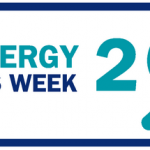Food-Allergic Teenagers

As if managing school, sports, homework, extracurricular activities, friends and social events isn’t enough, food-allergic teenagers have even more challenges to face than most. Too often the pressure to fit in with their peers causes some teens to get caught up in taking risks with their food allergies. Risky behaviors such as not reading labels and eating foods that could contain allergens, as well as not carrying emergency medicine when out with friends, are some of the most common.
Food-allergic teenagers who take a path of responsibly managing their food allergies discover they can still participate in most school and social activities and even sports. And an important part of this responsibility is carrying their epinephrine auto-injector with them at all times. On that subject, teens have several options.
Choose an Auto-Injector That’s Best for You
There are a number of epinephrine auto-injectors that have been approved by the FDA and are available, with a prescription, to people who are managing food allergies. The devices operate in different ways, so it is important to discuss your options with your doctor and be properly trained to use the device. Check out the list of devices currently on the market and learn the important information about each product, along with the training videos that show how to use them.
Sharing the Food Allergy Story with Friends
Friends are an important part of every teen’s life, so if food-allergic teens help their friends understand food allergies it helps everyone become more educated and aware. Friends also need to know about food allergies in the event of an allergic reaction. They should be able to recognize symptoms of a reaction and know what to do in case of an emergency.
Restaurants and Eating Out
Getting menus from popular restaurant enables food-allergic teens to know in advance what they can eat before their friends show up. Most restaurants are aware of food allergies and are glad to offer menu suggestions. For food-allergic teens who take their date out to eat, it’s important to order both meals that are allergy-safe.
Dating and Kissing
Dating and relationships are a big part of every teenager’s life, including food-allergic teenagers; and it’s important for them to know that kissing can cause an allergic reaction if someone has eaten an allergenic food up to several hours before a kiss.
Drugs and Alcohol
Drugs and alcohol affect a person’s judgment. If a person is under the influence, they will have difficulty making clear decisions or recognizing symptoms of an allergic reaction. Alcoholic beverages can include common allergens, such as Amaretto liqueur which contains almond.
Open Communication
A best case scenario for teens with food allergies is an open dialog with parents, friends and especially their allergist. Having access to a professional who can answer questions about food allergies adds a level of confidence for food-allergic teenagers.




